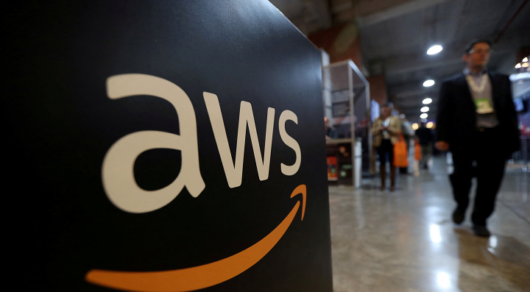In the ever-changing world of digital marketing, brands are facing two major customer acquisition challenges in 2024:
- The imminent demise of third-party cookies.
- The escalating competition and costs in advertising.
In this article, we delve into these challenges and provide innovative strategies to help you connect with customers and thrive in this dynamic landscape.
Challenge one: The decline of third-party cookies
The major shift in data tracking
Google’s decision to phase out third-party cookies by the end of 2024 signals a fundamental change in how data is tracked and utilized online. With features like ‘Tracking Protection’ in Chrome, cross-site tracking is limited to protect user data, posing a challenge for businesses relying on targeted ads.
Adapting to the change
Businesses should thoroughly audit their codebase, identifying the usage of third-party cookies and employing tools like Chrome DevTools and extensions to analyze the cookies in play. Also, collaboration with providers, such as social media or CRM platforms, is crucial to mitigate the impact of third-party cookie removal.
Strategies for success in a cookie-less world
- Strengthening zero- and first-party data collection
Preezie’s journeys tool, a personalized product recommendation quiz, provides a robust solution for brands looking to strengthen zero- and first-party data in the absence of third-party cookies. Through interactive quizzes on your website, customers are engaged to share valuable insights into their preferences, styles, budgets, and more. The seamless integration of email and SMS capture at the end of the quiz allows you to utilize their responses, enabling the creation of detailed shopper profiles to foster direct customer relationships. Preezie’s journeys help uphold ethical standards and ensure transparent interactions that prioritize user consent.
- Retargeting without third-party cookies using Preezie’s journeys
Using Preezie’s journeys to collect zero- and first-party data provides a comprehensive understanding of shopper preferences and behaviors. The data and contact information gathered throughout quiz journeys facilitates targeted pre- and post-purchase communications. Additionally, real-time engagement patterns from custom events enhance the capacity to refine purchase flows, customize campaigns, and optimize marketing strategies. This ultimately results in the development of personalized shopper profiles, contributing to more effective retargeting and an increased likelihood of purchase.
- Exploring Universal IDs and adopting privacy-focused solutions
The discontinuation of third-party cookies has prompted the retail industry to explore alternatives like Universal IDs, driving a shift towards reliance on first-party data for cross-device tracking. A universal ID is a special code that helps advertising technology companies recognize users across various websites and devices. It can be created using first-party cookies and certain data like your IP address or email.
Although Google’s delay in discontinuing third-party cookies allows time for refining privacy initiatives, it still poses challenges around reduced targeting accuracy and potential revenue decline. Adapting to these changes requires close collaboration between advertisers and publishers, leveraging customer data for personalized campaigns, and embracing privacy-focused solutions.
Challenge two: Rising competition and ad costs
A battlefield for customers
As the number of e-commerce businesses continues to grow, the competition for advertising space becomes increasingly fierce. This heightened competition not only drives up costs but also presents a huge challenge for brands striving to distinguish themselves within the constraints of limited budgets.
Strategies to overcome ad competition and costs
- Diversification and creativity in advertising
Explore alternative channels, including the use of micro-influencers for niche engagement and prioritize showcasing genuine, authentic moments within specific online communities. This approach aims to enhance the impact and cost efficiency in marketing efforts.
- Data-driven precision and personalisation with AI
Unlock the power of data-driven personalization in advertising by refining targeting strategies with AI. You can use AI-driven insights for precise audience targeting based on intricate patterns to foster deeper connections with customers, ultimately maximizing ROI.
- Nextbuy: A new customer acquisition channel
Nextbuy, powered by Preezie, presents a collaborative solution for brands seeking innovative customer acquisition. In this brand-to-brand referral network, partners mutually share their audiences. A widget featuring special offers and discounts appears on each other’s checkout confirmation pages, enticing customers to make additional purchases and generating referred sales. This mutual exchange within the network leads to heightened conversion rates and a lower cost per acquisition compared to conventional digital advertising channels like Google Ads. Embracing collaboration and cross-promotion, this approach proves to be an effective strategy for customer acquisition.
Embrace innovative customer acquisition strategies
The impending demise of third-party cookies, prompted by privacy concerns and browser restrictions, is pushing brands and advertisers to find alternative solutions. Concurrently, the growing number of e-commerce businesses is driving up competition, saturating advertising space and increasing costs.
Nevertheless, this challenging scenario also presents an opportunity for innovation. Businesses can navigate these challenges by exploring unconventional advertising channels, investing in robust data analytics, embracing personalized marketing tools, and adopting new technology with a focus on zero- and first-party data collection, paving the way for growth.
For effective customer acquisition, conversion, and retargeting strategies, partner with Preezie. Our solutions achieve this by leveraging behavioral psychology principles, facilitating brand collaboration, offering guided shopping experiences, and enabling zero-party data personalization.
Visit www.Preezie.com.






